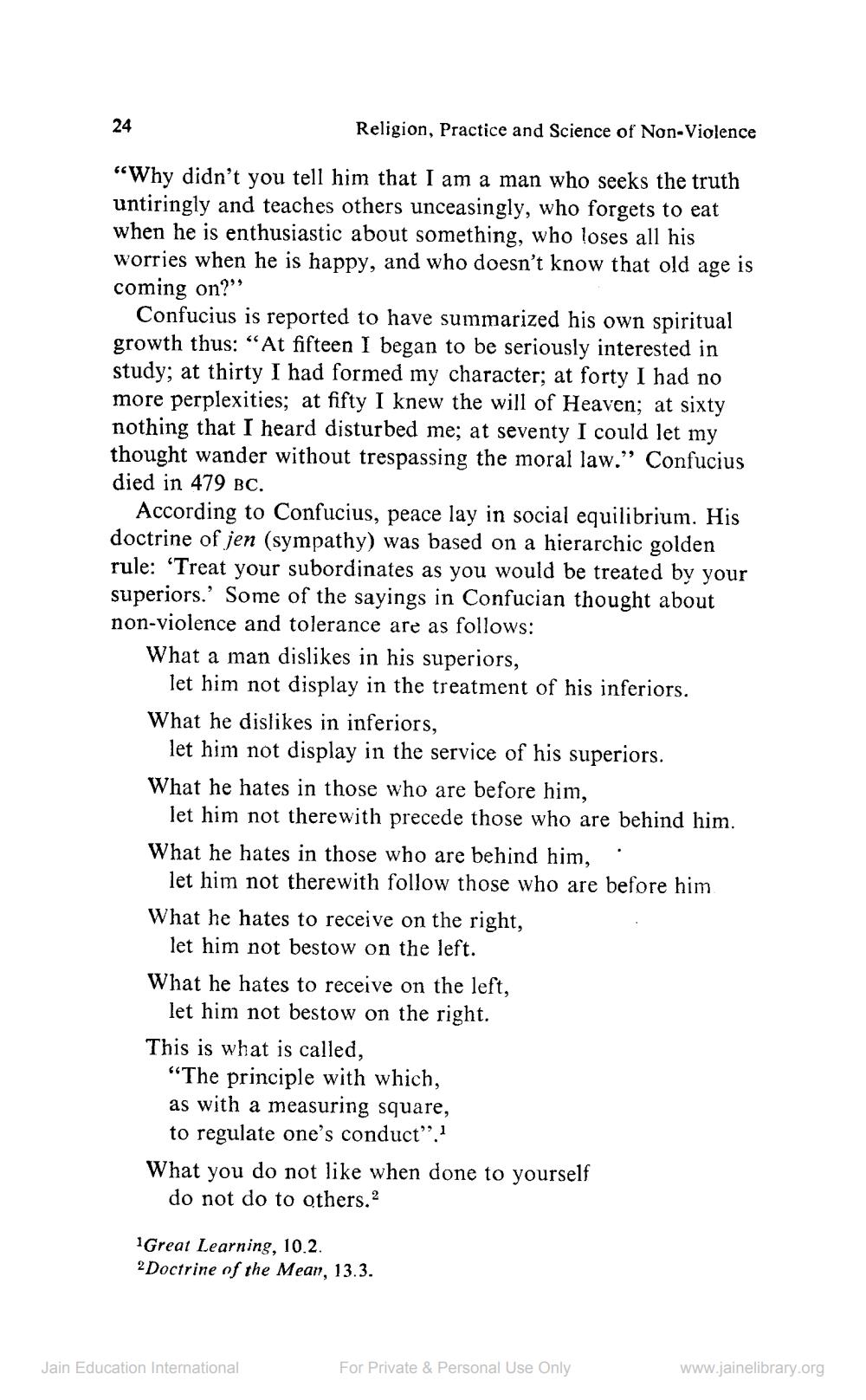________________
A
Religion, Practice and Science of Non-Violence
“Why didn't you tell him that I am a man who seeks the truth untiringly and teaches others unceasingly, who forgets to eat when he is enthusiastic about something, who loses all his worries when he is happy, and who doesn't know that old age is coming on?”
Confucius is reported to have summarized his own spiritual growth thus: “At fifteen I began to be seriously interested in study; at thirty I had formed my character; at forty I had no more perplexities; at fifty I knew the will of Heaven; at sixty nothing that I heard disturbed me; at seventy I could let my thought wander without trespassing the moral law.” Confucius died in 479 BC.
According to Confucius, peace lay in social equilibrium. His doctrine of jen (sympathy) was based on a hierarchic golden rule: 'Treat your subordinates as you would be treated by your superiors.' Some of the sayings in Confucian thought about non-violence and tolerance are as follows: What a man dislikes in his superiors,
let him not display in the treatment of his inferiors. What he dislikes in inferiors,
let him not display in the service of his superiors. What he hates in those who are before him,
let him not therewith precede those who are behind him. What he hates in those who are behind him,.
let him not therewith follow those who are before him What he hates to receive on the right,
let him not bestow on the left. What he hates to receive on the left,
let him not bestow on the right. This is what is called,
“The principle with which, as with a measuring square,
to regulate one's conduct", 1 What you do not like when done to yourself
do not do to others.2
1Great Learning, 10.2. 2 Doctrine of the Mean, 13.3.
Jain Education International
For Private & Personal Use Only
www.jainelibrary.org




